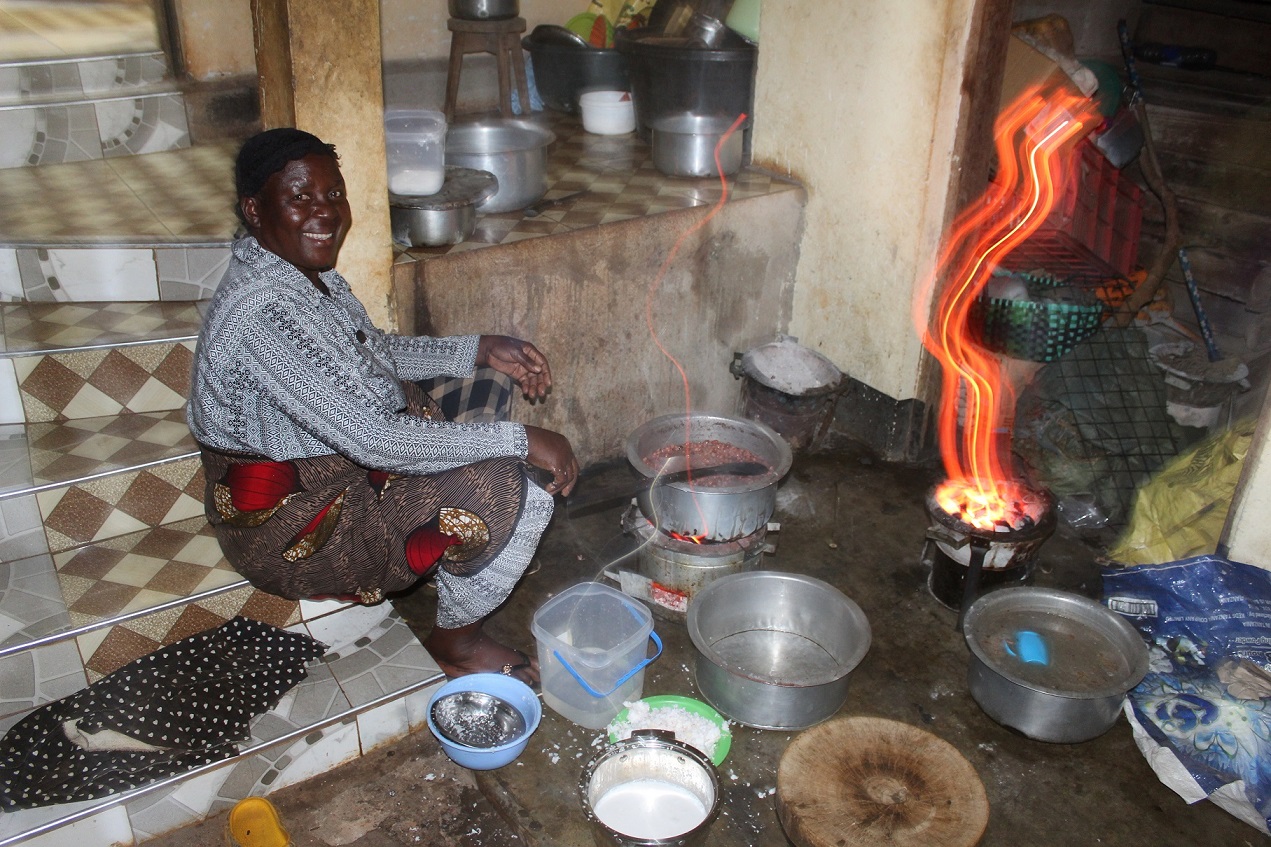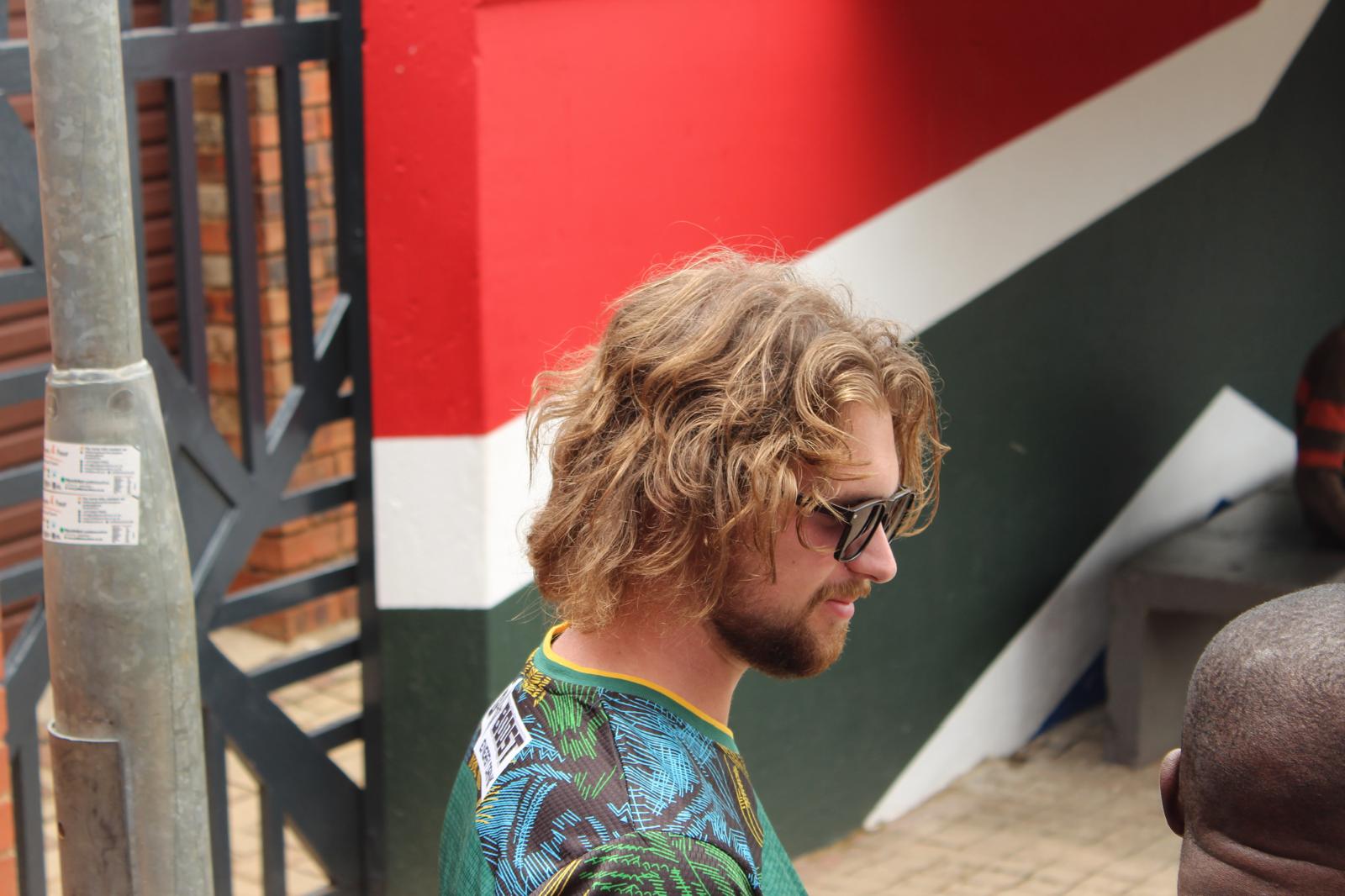Touchdown in Tanzania
Written on October 12th, 2024 by Ben Weber
I’ve been in Tanzania for over a month now. It’s a very pretty country with a diverse landscape and very welcoming people. I had hoped to update this blog sooner, but I have been very busy with training.
Before I left the US, I spent two days in Philadelphia meeting my fellow volunteers in our cohort. I learned there that we are the 89th volunteer group (TZ 89) to serve in Tanzania. There were 27 of us in this cohort to start, but two have already returned to the US which is a normal dropout rate for Pre-Service Training (PST). There are currently five health volunteers, five agricultural volunteers, and fifteen education volunteers.
In the few days that I spent in Philly, I got to walk around downtown Philly, see the Liberty Bell and City Hall, and try a Philly cheesesteak. The morning before my first international flight, my cohort and I woke up to get on a chartered bus from Philly to the JFK airport. It was a fun drive, with lots of rain, so we didn’t get a great view of New York on our way up. Once we arrived at the JFK airport, we realized that we had arrived very early. We had to wait a few hours for the desk for Kenya Airlines to open and check our bags. Once we got through security, we ended up waiting for another few hours as our flight kept getting delayed and delayed. Finally, we were able to get on the flight several hours after the scheduled time.
The flight itself was loooooong. Unfortunately, my row of seats had no power. Our televisions didn’t work, and the reading lights or fans didn’t turn on. I had the aisle seat next to Magnolia and Ryan, my roommate in Philly, had the window. We were offered to sit in a row that had power, but it only had two seats so we couldn’t sit together. We opted to stay together and try to make it work. We had a very fun start to the flight due to alcoholic beverages being complimentary. One of the flight attendants had a very generous with the pour which was greatly appreciated. Unfortunately, Ryan’s table was also broken, and he ended up spilling one of his drinks all over himself. After they stopped serving drinks, we talked and laughed loudly for a few hours much to the dismay of the people around us. Ultimately, my seatmates fell asleep for a while. I had a much harder time falling asleep since the seats were uncomfortable. We got to witness the sunrise over the ocean from the airplane, which was a unique experience I wasn’t planning on seeing. The windows didn’t have any hard-plastic shades, so it started getting very bright on our side of the plane as the sun rose more. The rest of the volunteers started getting up and walking around waiting out the last few hours of the flight.
After landing in Nairobi we had to run to our next flight to get to Dar es Salaam. The next flight was being held for us since we were late from leaving the JFK airport. It was a quick one-hour flight to get to Tanzania and we had almost completed our journey. Upon arrival in the Dar es Salaam airport, we were greeted by most of the Peace Corps staff who helped us through the customs and getting our bags.
We then took a quick drive to a conference center where we stayed for the rest of the week. At the conference center, I got acclimated to the time zone, had some medical trainings, and got an introduction to parts of Tanzanian culture. The conference was Christian based and we shared the center with many priests who were gathering there. In each room, there was a glow-in-the dark crucifix which looked over our beds. The most prominent aspect of the Tanzania culture is how often they eat food. At the conference center, they fed us five times a day. Throughout the training days we have three breaks. A break around 10:30am called Chai break where small snacks and tea or coffee is served, a lunch break around 12:30pm, and a soda break around 3:30pm where they provide soda and more small snacks. In addition, to the breaks we were fed breakfast and dinner. I was very overwhelmed by how much food they were offering and continue to be overwhelmed with massive amounts of food.
The main reason why this month has gone by so quickly is that I’ve been in trainings every Monday to Saturday starting at 8am and scheduled to end at 5pm. Luckily, we get off early some days and can have some time to relax in the afternoon.
After that first week of training in Dar es Salaam we left on Saturday morning to drive North to the Tanga region and met our host families for the rest of PST in Korogwe. The volunteers were split into groups of three or four who live nearby each other in a community-based training (CBT). The agriculture volunteers are near each other, the health volunteers are near each other, and the education volunteers are near each other. My CBT consists of Magnolia, Devin, Joe, and me. All our host family houses are within a two-minute walk of each other.
My host family is quite large, but not everyone lives at the house. I am staying with a family of rice farmers. My host dad is called Anthony, my host mom is called Esther, and they have seven kids. Three of those kids live in the same city as us: Winfrieda, Thomas, and Neema. Winfrieda is a cook, Thomas works on the farm and has a small convenience store, and Neema is a pharmacist. In addition to their seven kids, they also have several grandchildren a few of whom stay with me at the house: Irene, Nora, and Margaret who are all students at the local schools. My host family is teaching me how to cook the local foods, do laundry in buckets, take showers in buckets, and learn Swahili better.
Since we’ve been staying with our host families, Devin, Joe, Magnolia, and I go to the local high school from Monday to Wednesday to learn from our teacher Selina, who teaches Swahili and introduces us to teaching skills. In addition to learning Swahili, we have observed other teachers in the classroom and start practicing teaching. On Thursday and Friday, we go to the local college to meet up with all the other volunteers for cohort-wide training on medical topics, safety and security, and policies. Each week we get to connect with one of the in-country volunteers who provides insight on being a Peace Corps volunteer.
I’ve been having a lot of fun being in Tanzania for this month, but it has been very tiring. Some things I’ve enjoyed about Tanzanian culture that differ from the American culture is the language, greetings, market, and transportation.
The structure of Swahili is much different than English. In Swahili, verbs have a lot of forms that aren’t present in English. It is cool that Swahili allows the speaker to state the subject, object, tense, and action all in the same word. But is hard to remember all the way to conjugate verbs and is very mentally taxing. Additionally, greetings are very important in Tanzania. It is expected to say several greetings to anyone you meet when walking by or stopping to talk. And there are lots of greetings to be said. Also, I’ve loved the market experience. In America, I’m used to price tags and being able to pay with my phone. But here in Tanzania it is much different. There are no price tags on anything, but some items do have set prices (if you know about them). A bottle of soda has a set price of 700 shillings ($0.26) but if you aren’t careful someone might charge you more. Further, since there aren’t any price tags foreigners are often charged a ‘mzungu bei’ (foreigner price) due to perceived wealth. I have been enjoying haggling with shopkeepers for better prices and enjoy the more personal shopping experience. The transportation is also different than the way we commute in America. In rural communities, it is not common for people to have a car and drive themselves around. The buses are always full, and I often see 2-3 people on a motorcycle. The most unique aspect of the transportation here is the bajaji. A bajaji is a small three-wheeled gas car that acts as the taxi service here. The bajaji has unique steering system which looks like a steering system for a motorbike. Each bajaji is independently owned but they are abundant. Typically, a bajaji holds three passengers in the back with a driver in the front. But I have seen groups of up-to-six people pack into these tiny cars. It’s a fun transportation experience. There’s also some haggling involved with the bajaji driver to get a lower price and get where you want to go.
Next week marks the halfway point of my PST which is rigorous three-month training I need to complete before moving to my site for two years. I have requested to be in colder climate at a higher altitude and near the volunteers in my small group. I’ve been limited in updating this due to the lack of Wi-Fi access, but I hope to remedy that when I am at my permanent site.

